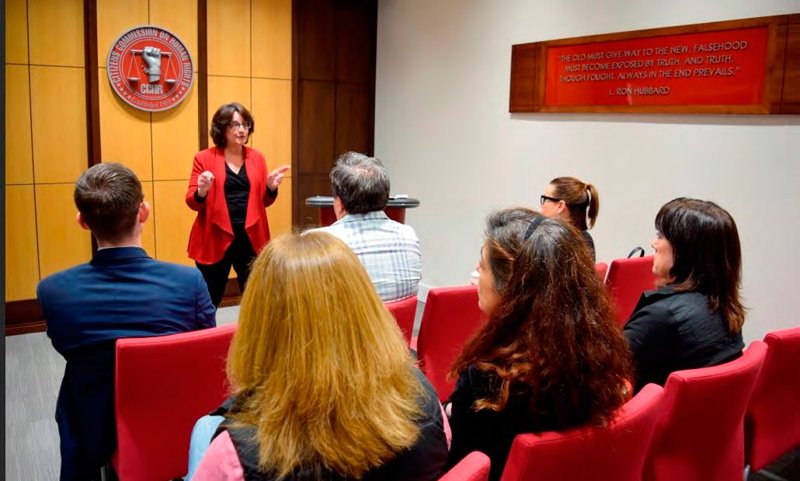Do Suicide Risk Assessments Cause More Suicides?
Every 12 minutes, an American commits suicide. Citizens Commission on Human Rights explores the cause of this grim statistic.
The Florida chapter of Citizens Commission on Human Rights (CCHR) is alerting Floridians to the connection between America’s suicide epidemic and two factors: the country’s reliance on suicide risk assessments and the administering of antidepressants. They are bringing this information to the community through briefings, lectures and open house programs at their center in downtown Clearwater.

Every 12 minutes in the U.S., another life ends from suicide—an average of 44,965 people each year—making suicide the 10th leading cause of death of Americans. Internationally, more people die of suicide than from wars and natural disasters combined. According to the Centers For Disease Control and Prevention (CDC), in 2015, suicide deaths were more than double the deaths of homicides. In other words, for every murder reported in the news, there were at least two deaths from suicide.
“Too often, people rely on unproven suicide risk assessments as a catchall when dealing with a person experiencing a crisis,” says Diane Stein, President of CCHR Florida who wants people to know that rather than detecting and preventing suicide, these assessments may be worsening the problem.
The March 2017 edition of Scientific American, reports on a recent study that reviewed the results of the last 40 years of suicide risk assessment and found:
- 95 percent of those found by the assessment to be “high-risk” patients did not, in fact, die by suicide,
- 50 percent of those who committed suicide were assessed in lower risk categories,
- 40 years of suicide risk assessment have not improved the accuracy of suicide risk detection,
- No statistical method exists for correctly identifying those who are at high risk of committing suicide,
- Widespread use of suicide risk assessment diverts clinicians from real engagement with patients, thereby potentially increasing the risks of suicide.
Despite these assessments being ineffective, patients labeled by them as high risk of depression or suicidal ideation are often placed on prescriptions of dangerous psychotropic drugs with side effects creating the exact symptoms they are marketed to treat. For example, Celexa, a common antidepressant, is linked to a staggering 559 cases of documented suicide.
“With 1 in 6 Americans currently taking psychotropic drugs, suicides continue to rise. Americans need look no further than their medicine cabinets for major chemical contributors to the increased suicide statistics our country faces,” says Stein.
CCHR open houses educate the community on psychiatric abuse and inform those attending of actions they can take to report such abuse and protect their families and friends. For more information on the next CCHR open house, the truth about psychiatric drugs, educational materials or alternative solutions, call CCHR Florida at 727-442-8820, visit CCHR at 109 N. Fort Harrison Avenue or visit www.cchrflorida.org.
CCHR is a non-profit mental health watchdog established in 1969 by the Church of Scientology and renowned psychiatrist Dr. Thomas Szasz. CCHR’s mission is to eradicate abuses committed under the guise of mental health and enact patient and consumer protections.
The Scientology religion was founded by author and philosopher L. Ron Hubbard. The first Church of Scientology was formed in Los Angeles in 1954 and the religion has expanded to more than 11,000 Churches, Missions and affiliated groups, with millions of members in 167 countries.
CONTACT:
Church of Scientology Media Relations
mediarelations@churchofscientology.net
(323) 960-3500 phone
(323) 960-3508 fax

